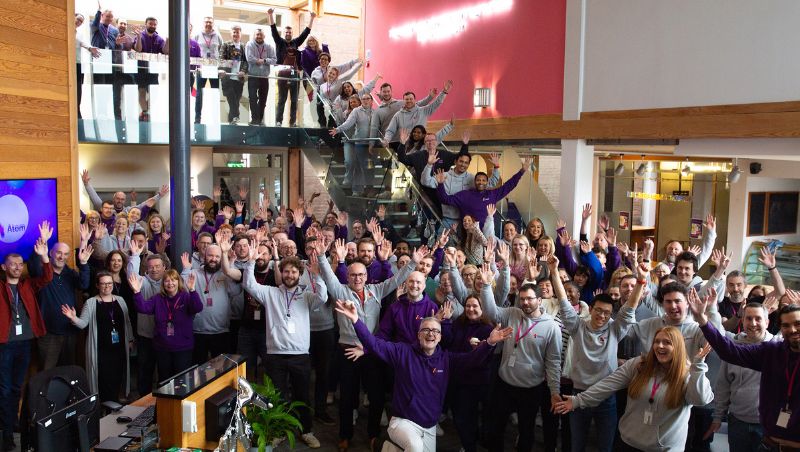Among the winners of Innovate UK Accelerated Knowledge Transfer funding are farming business G’s Growers and the Colchester-based community organisation, Changing Lives Community Services CIC.
Innovate UK’s Accelerated Knowledge Transfer (AKT) scheme has been designed to create short-term collaborations between businesses and knowledge bases, such as universities.
The programme is inspired by the highly successful Knowledge Transfer Partnership (KTP) model and aims to accelerate the evaluation or development of an innovation project or concept, which has the potential for significant impact for a business or organisation.
Essex academics will be working with a range of organisations from different sectors across East Anglia and London over the coming weeks as part of the AKT programme.
Other firms partnering with the University through the AKT programme include mobile-app only bank, Atom bank, planning specialists Iceni Projects and tech security firm Glasswall.
Rob Walker, Head of Business Engagement at the University of Essex, said: “We are thrilled to have secured funding from Innovate UK for multiple Accelerated Knowledge Transfer projects.
"These shorter, more tactical funds help lay the groundwork for broader collaborations, enhance a business’s understanding of collaborative potentials, and provide a low-risk opportunity to innovate new products, services, or concepts.
"Across 2024 we plan to secure further funding in this space, and we’d love to hear from industry on how they can leverage this opportunity."
G’s Growers
G’s Growers is aiming to improve crop health by learning more about plants and the nutrients required at each stage of their growth.
G’s will work with Essex academics Dr Amanda Cavanagh and Dr John Ferguson, based in the School of Life Sciences, to find a non-destructive, remote-sensing based detection system.

This will help speed up the analysis process, allowing G’s to respond quicker to different types of crop stress, something made increasingly prevalent by climate change, regulations around pesticides and financial pressures caused by rising fertilizer prices.
G’s will be tapping into the knowledge of Drs Cavanagh and Ferguson, using their wealth of knowledge on data points relevant to the plant growth cycle and plant health.
Changing Lives Community Services CIC
Changing Lives will be working with Essex to unearth evidence of the physical and mental benefits playing football has on refugees.
The community organisation wants to secure empirical data with the help of Dr Chris McManus, from the School of Sports Rehabilitation and Exercise Sciences, as it bids for more funding to expand its work with refugees.

20 refugees playing competitive football through Changing Lives will be monitored through a mix of physiological tests (e.g. blood pressures and body composition) semi-structured interviews, and mental health questionnaires to establish what impact playing competitive football has on them.
A researcher will also attend matches to observe and analyse the players’ interactions with each other.
Iceni Projects
Iceni will look to use Natural Language Processing (NLP) to support the production of documentation to aid the planning process.
The company will be working with Dr Yunfei Long, a lecturer in Computer Science, whose primary research centres around NLP’s and its innovative application in business settings.
Atom bank

Atom bank will be utilising the statistical expertise of Essex’s School of Computer Science and Electronic Engineering in a bid to learn more about customer behaviour around its instant access savings service.
It will work with Dr Alexandros Voudouris and tap into his expertise around Machine Learning to develop a behavioural model, which will be based around customer responses to changes in interest rates by competitors.
It is hoped the partnership will lead to enhanced marketing and customer outcomes at Atom bank, along with improved revenue and a reduction in risk.
Glasswall
Using Adversarial Machine Learning (ML) techniques, Glasswall wants to investigate the security of its Artificial Intelligence (AI) and ML pipelines and its products to better protect against increasingly sophisticated malicious files.
It will work with Dr Zilong Liu, from Essex’s School of Computer Science and Electronic Engineering, to determine what type of cyber attacks would work against its pipelines and ML models, and identify what weaknesses there might be.
Glasswall hopes this will lead to more secure and stable models as well as novel defences to attacks against AI and ML systems, which can influence the wider sphere of cybersecurity, and lead to longer term links with Essex.
For more information about collaborative partnerships with academic expertise from the University of Essex, visit www.essex.ac.uk/business/expertise




.jpg?mh=500&mw=500&hash=6568B6C9CCF5290A596BEF6678B6AD0E)




